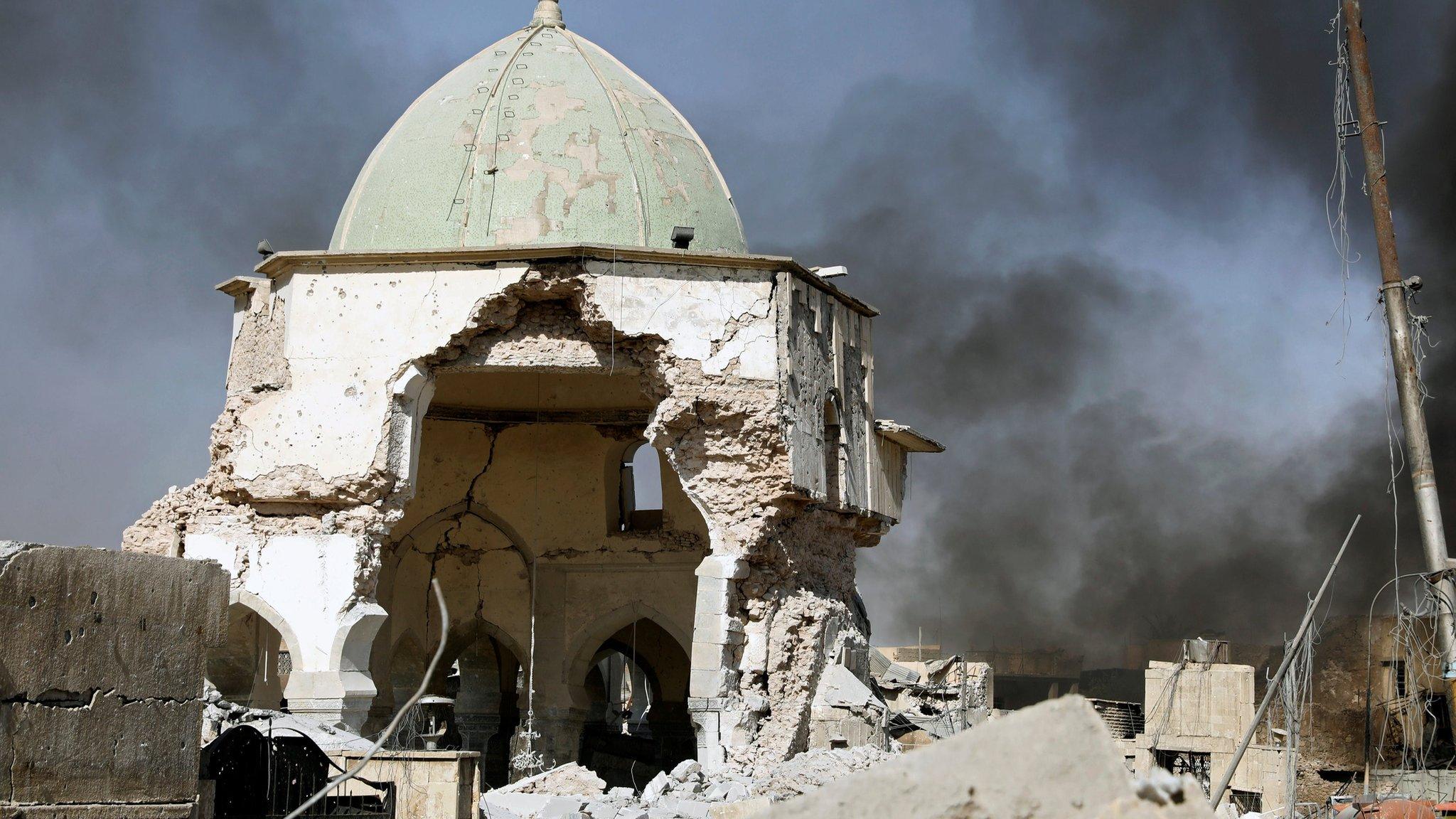Can civilian deaths be avoided in RAF strikes on IS?
- Published
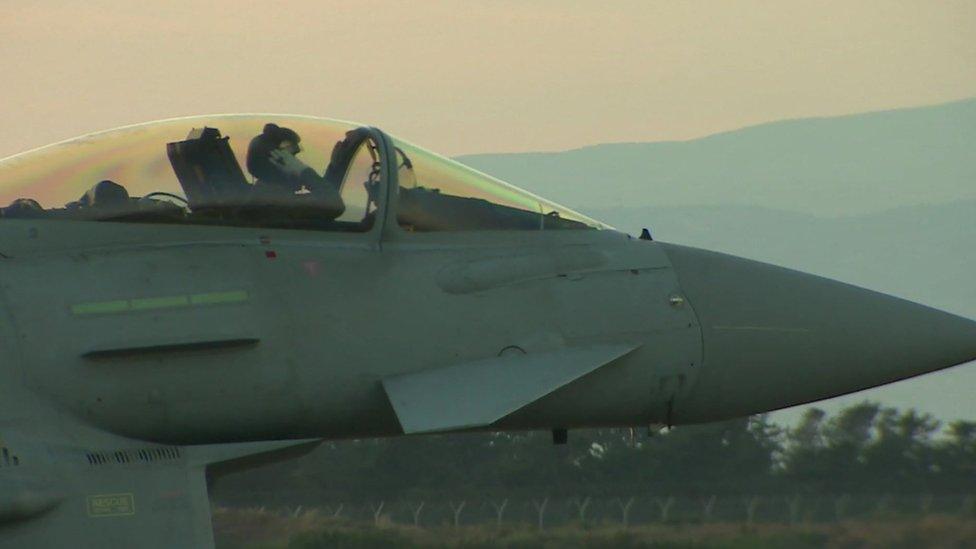
In its fight against the so-called Islamic State (IS) the RAF has carried out more than 1,000 air strikes and released more than 3,000 bombs and missiles since October 2014.
It says this is its "most challenging fight for decades" and yet has "no evidence" yet that it has caused any civilian casualties.
So far, the United States is the only coalition country to have acknowledged responsibility for civilian casualties, 484. But Airwars, external, a group monitoring reports of casualties from the ground, thinks that, with dozens more incidents still to be investigated, the real figure is much higher.
The fight against IS is now in its most difficult phase.
The reason is simple. The US-led coalition is trying to dislodge the extremists from their strongholds of Raqqa and Mosul - cities with tightly packed streets where they are hiding among the local population and using them as human shields. The risk of civilian casualties is extremely high.
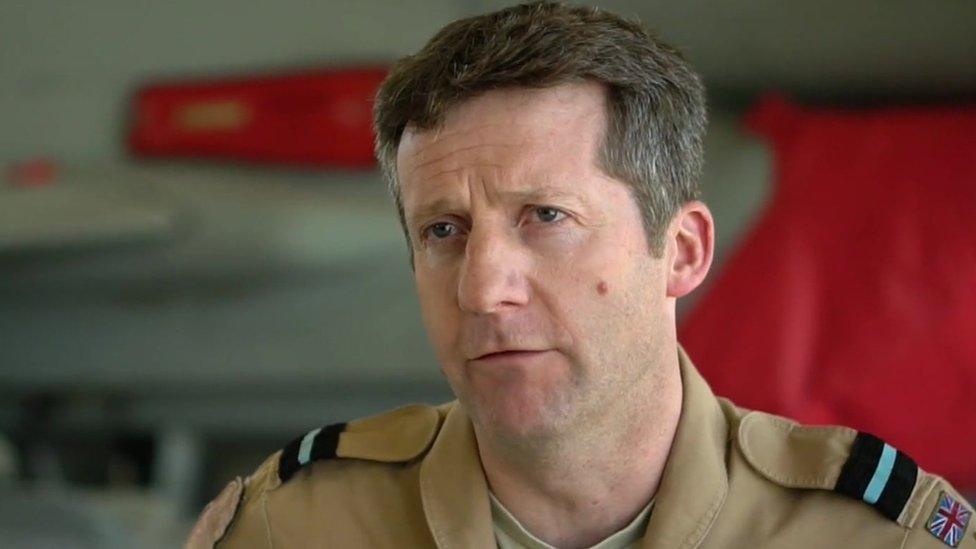
Air Commodore Johnny Stringer oversees the RAF's contribution to the US-led anti-IS coalition
I put it to Air Commodore Johnny Stringer, who is overseeing the UK's contribution, that avoiding civilian casualties is simply not possible. He acknowledges that assessment might change over time. "We are human and not perfect," he says, "but we are doing our damnedest" to get it right.
The US investigation into reported incidents of civilian casualties is being carried out by a small group of military personnel. The team of two was recently increased to six. Given the intensity of the battle on the ground they often have no access to the sites to speak to any eyewitnesses.
In contrast, Airwars, believes that at least 4,118 civilians have been killed. Before the offensive on Mosul began Airwars was investigating about 40 allegations of civilian casualties a month, but now it is up to 160.
For its part, the RAF says it is going out of its way to address worries about mistakes which might result in civilian casualties. The BBC has been told that in the second half of 2016 - when the offensive on Mosul began - the RAF either turned down, or asked for more intelligence about, half the targets it was given.
We asked Air Commodore Stringer specifically about Airwars' allegation of 80 civilian casualties, external caused by non-US allies in the coalition. He was adamant the US had not shown him anything to suggest UK was one of those countries.
For the first time we've been allowed to interview some of the RAF crews involved in the mission about the challenges they are facing.
At RAF Akrotiri in Cyprus they talked us through some of the air strikes they have been conducting, using the cockpit footage that records every bomb dropped and missile fired. We agree not to use their full names to protect their identities.
James, a wing commander, flies in a Tornado. He tells me civilian casualties are the biggest risk to the mission because "if we cause them there's pressure for us to stop".
He shows me the imagery of a recent air strike on an IS artillery position hidden in the doorway of a high-rise building in Mosul. The aircrew has been directed to the target by Iraqi troops via an operations room on the ground.
That office can receive a feed of the cockpit video from the jet, flying tens of thousands of feet above, to make sure they are all looking at the right building.
There is a heat haze as the Tornado fires a Brimstone missile. It can be directed either by a laser or GPS. The aircrew can alter the trajectory, the line of attack and the timing of the fuse to limit the impact and collateral damage.
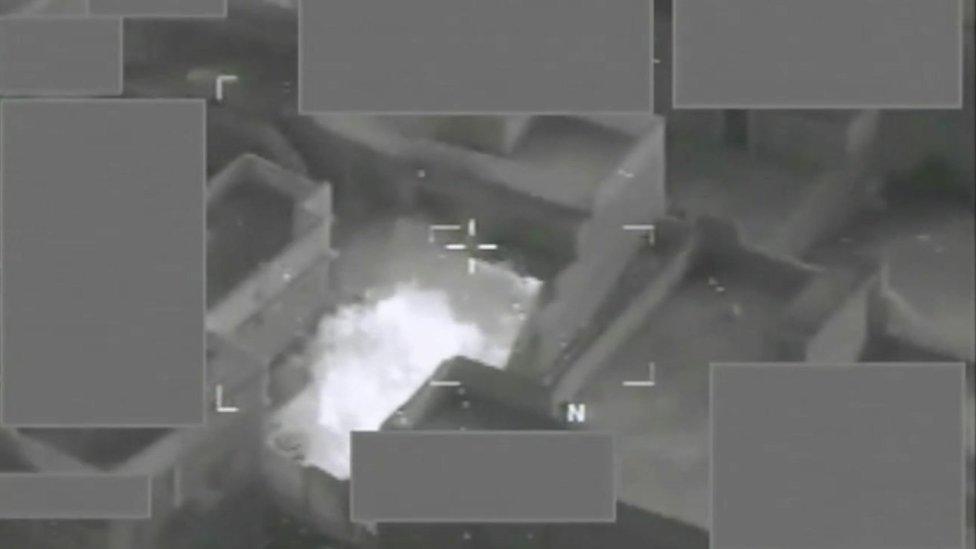
Cockpit footage of an RAF air strike on an IS artillery position in Mosul
Seconds after it is fired, the Brimstone hits the doorway where the weapon has been hidden. Once the dust clears the building is still standing relatively unscathed.
James tells me the Tornados are now carrying more Brimstone missiles because their small explosive causes less damage than the larger Paveway bomb.
"Dave", not his real name, operates a Reaper remotely-piloted aircraft. He shows me how they use the drone's infrared sensor to detect the heat spot of a recently fired mortar hidden in a residential area. The only other heat spot is a motorcyclist, who clears a nearby road before the Reaper fires its Hellfire missile.
I ask "Dave" whether he can guarantee there will be zero civilian casualties. Even infrared sensors can't see through walls. After a brief pause he admits its not possible to give that assurance. But, he says, they are doing everything in their power, including watching an area for hours, to protect civilian life.
Every member of the crew, he says, "wants to go home with a battle damage assessment that says no civilian casualties".
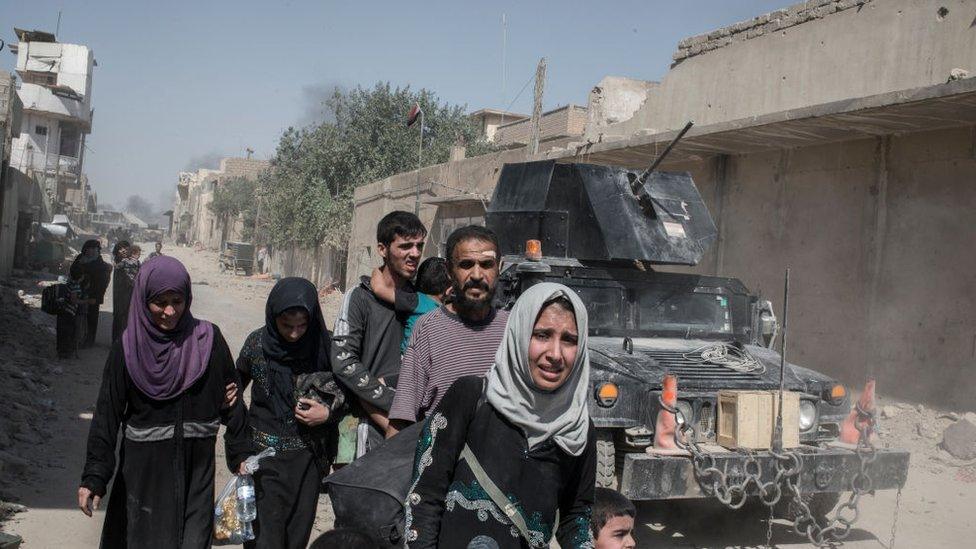
Many civilians have fled from IS-controlled areas of Mosul. Many others remain trapped
There have been suggestions the rules of engagement for coalition forces have been relaxed since the offensive on Mosul began.
Air Commodore Stringer insists there is still the same scrutiny and oversight for each target. But when aircrews need to act quickly in support of forces on the ground, they can decide to engage a target quickly. The process has been speeded up with decisions taken close to the battle.
There have also been reports that the UK has a "hit list" of British jihadis it is trying to kill in Iraq and Syria. Air Commodore Stringer insists there is no such list - but he adds that, by dint of their membership of IS they would, nevertheless, be legitimate targets.
The general election has thrown up questions about whether this kind of military intervention is fuelling the terrorist threat back home. Air Commodore Stringer says he struggles to make the connection.
"We have an opponent who just hates us and everything we stand for," he says. "We have to deal with that and defeat them militarily. And that is why we're here."
They are fighting a brutal enemy, who unlike them, has no worries about killing civilians.
- Published22 June 2017
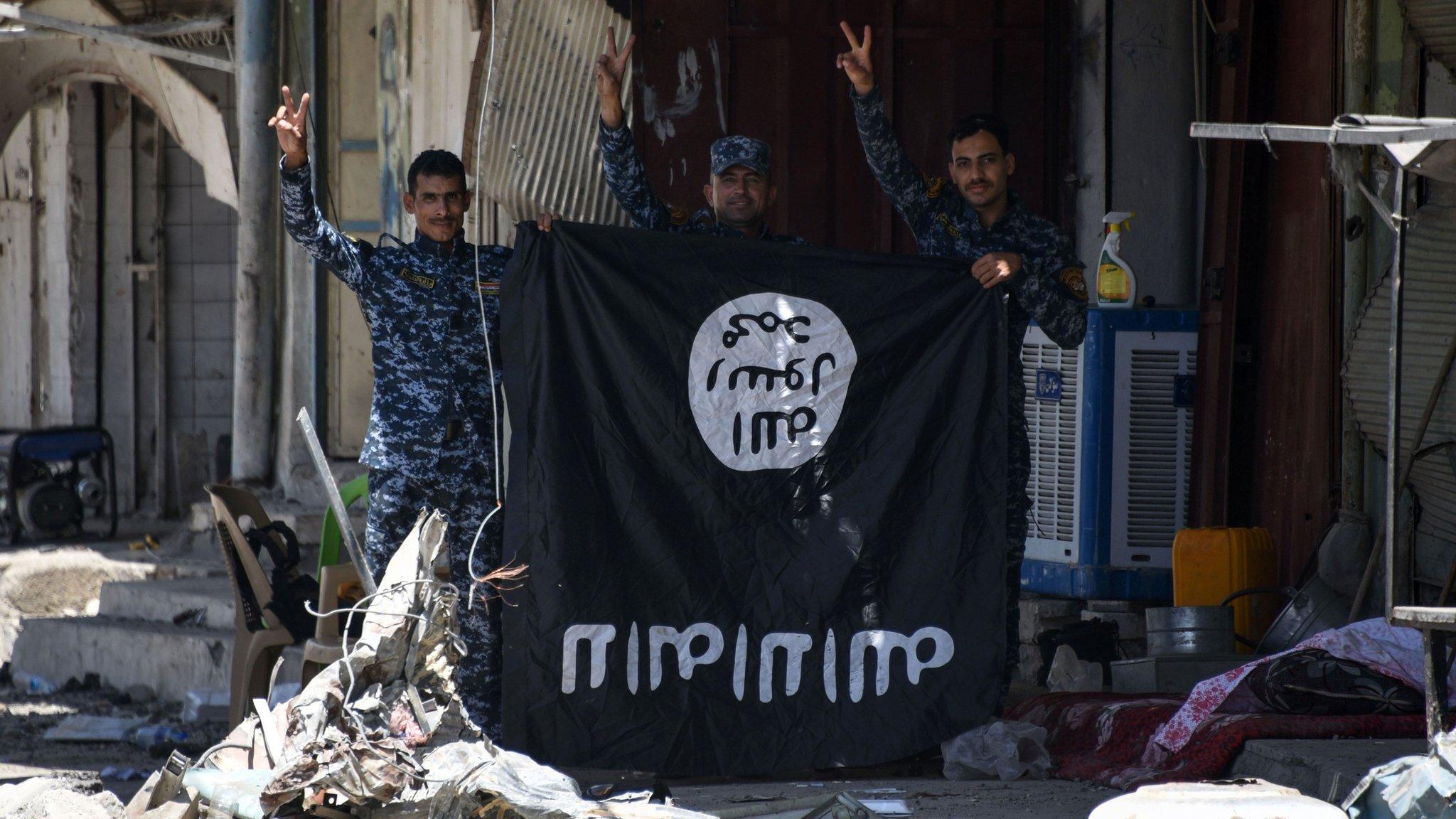
- Published29 June 2017
